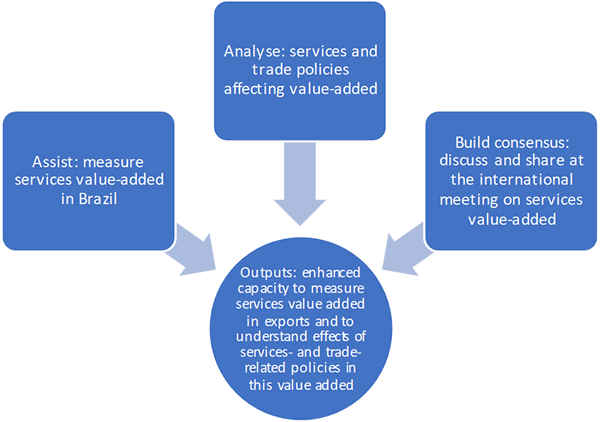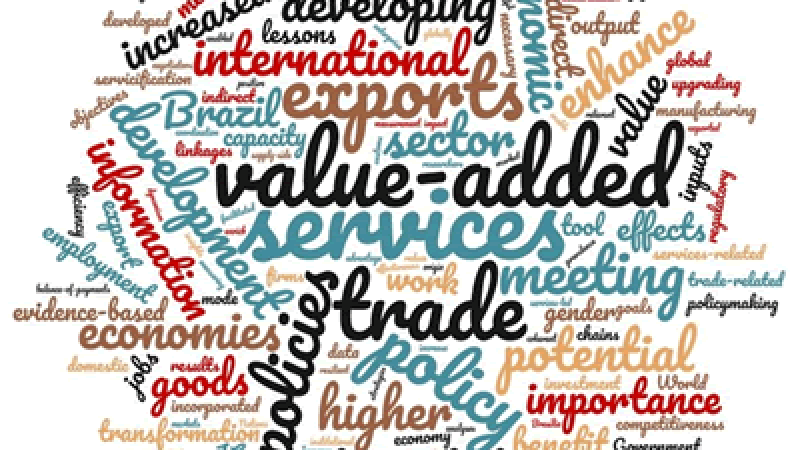Globally, trade in services reached $5.8 trillion in 2018. This was an all-time best confirming the dynamism of services exports, higher than for goods. In developing economies, services' exports grew 7.6 per cent annually between 2005 and 2018, increasing services' direct contribution to total exports from 14 to 17 per cent. These trends come short of reflecting the full importance of trade in services. There is substantial value-added of services, which is not captured in this data, incorporated in goods exports, from services intermediate inputs and from services bundled with goods.
While services direct exports in 2011 accounted for 14 per cent of total exports in developing economies, services represented a much higher share of the value-added in total exports: 32 per cent. In addition, while directly exported value-added has increased, close to two-thirds of the growth of services value-added in exports is due to an increase in services embodied in exports of all sectors. For a set of selected economies, when considering services activities within manufacturing firms, the contribution of services to overall exports was close to two-thirds. This places trade in services at the same level as services output, jobs and investment. In 2017, services globally achieved 68 per cent of output, 51 per cent of jobs and 50 per cent of foreign direct investment. This prevalence also occurs in developing economies where services were responsible for 56 per cent of output and 46 per cent of jobs.
Through these indirect roles, services can induce efficiency and effectiveness, reduction of productive and trade barriers, and contribute to more productivity, increased productive and export capacity and higher participation in global value chains. This highlights that the services sector is not an alternative to agriculture or industrial development, but rather provides key means to complement and strengthen agriculture and industrialization strategies. This can also induce a structural transformation which may favour sectors which tend to have higher productivity and thereby enhance the above-mentioned effects. A stronger services sector, namely through increased services value-added in all economic sectors, can be particularly relevant for gender equality and women's economic empowerment.
Knowledge gap
Despite the importance of services, many developing countries are yet to fully explore the development potential of services-led economic transformation and growth. The challenge of devising a coherent services and trade policy and regulatory framework is compounded by insufficient data on services' value-added and information on how services value-added in exports is affected or enabled by current trade, industrial and services policies.
Proposal
Objective
This UNCTAD-EU joint project addresses this knowledge gap and aims to enhance capacity in measuring services value added in exports and in understanding the effects of services- and trade-related policies in this value added.
Activities
-
Assist: Measure services value-added in Brazilian exports. Based on this measurement, develop a guidebook on the methodology to measure services' value-added in developing countries.
-
Analyse: Examine the effects of services and trade policies on services value-added in Brazilian exports of all economic sectors. Includes assessment of cross-cutting services policies and deep dive analysis on the enabling role of professional services and of information and communication technology services.
-
Build consensus: Discuss and share at the international meeting on services value-added in exports. Disseminate lessons learned and experiences; raise awareness on the role of services value-added for development and for policy action; share lessons learned on applying the methodology for measuring services value added in exports; and discuss effects that services and trade policies can have on services value added in exports.


